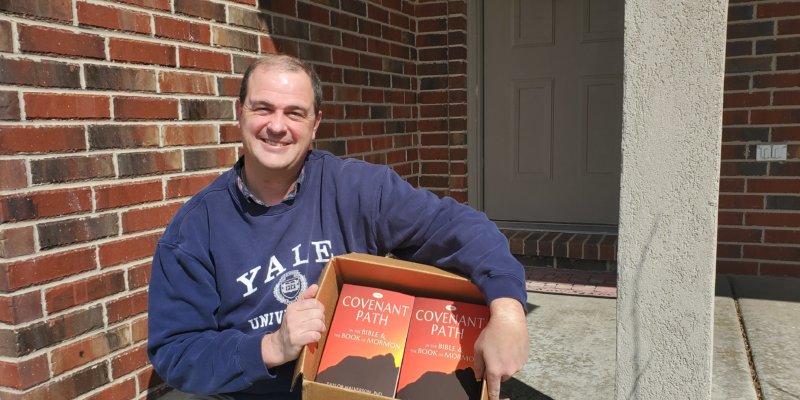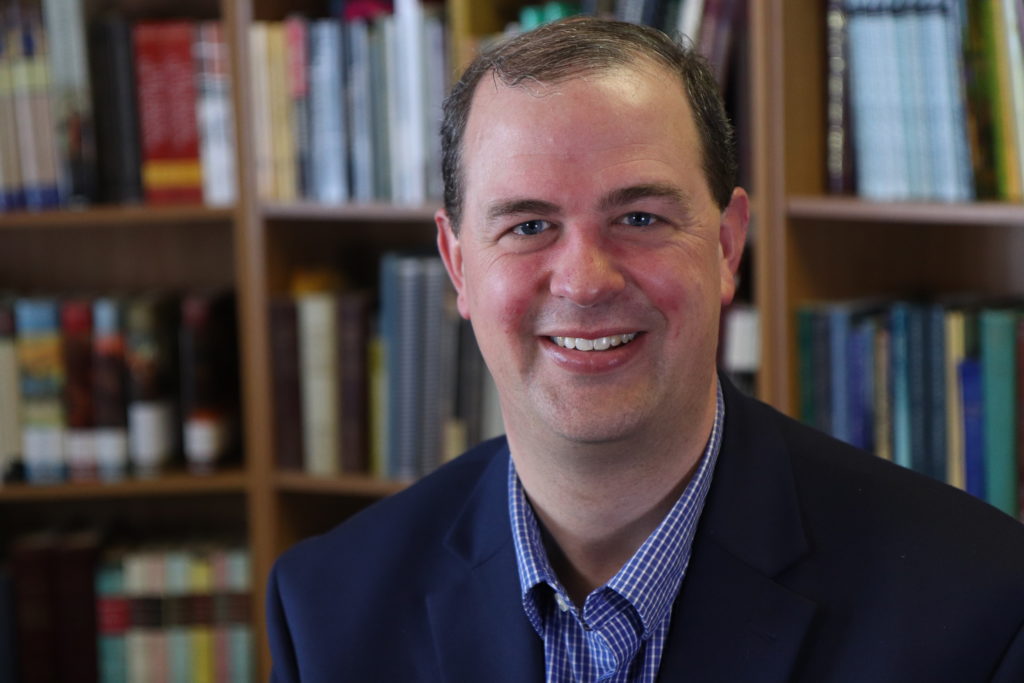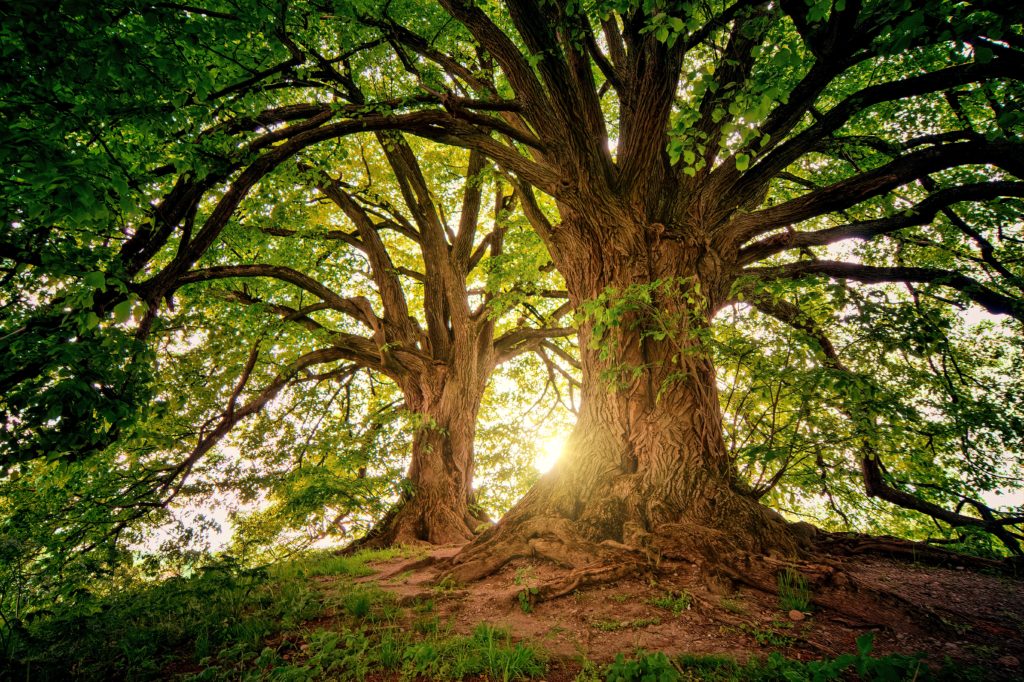Have you ever felt worried about someone you loved? Have you ever shared loving advice or counsel with someone who was at a decision point in their lives and you felt the weight of responsibility to teach them well?
That is what Jacob felt when teaching the Nephites at the temple. He worried for their souls. He worried that they might be cast off forever if he didn’t teach them properly and if they didn’t live as God had asked (see Jacob 4:17-18). Jacob wanted the Nephites to understand God’s loving acts of kindness throughout the history of the plan of salvation. He wanted the Nephites to see that even though some may fall away from God’s love, God continuously labors to save all His children, laboring throughout the generations to make salvation living and available.
To teach these truths, Jacob turned to the ancient Israelite prophet Zenos to describe God’s work with His covenant people, the House of Israel, and with all His children throughout the world. We call Jacob 5 the Allegory of the Olive Tree.
We can organize the allegory in this basic pattern:
- Jacob 5:1-3 introductory remarks
- Jacob 5:4-14 approximately corresponds to the Old Testament time period
- Jacob 5:15-28 approximately corresponds to the New Testament and Book of Mormon time periods
- Jacob 5:29-59 approximately corresponds to the time period of the great apostasy and restoration
- Jacob 5:60-77 approximately corresponds to the last days
Jacob 5:4-14 approximately corresponds to the Old Testament time period
The House of Israel is likened to a tame olive tree. God worked to support and bless the people of the House of Israel so that they would be fruitful in righteousness. But after some time, portions of the tree grew corrupt, symbolic of ongoing wickedness among the Israelites. To save the tree, God cut off some of the branches and planted them elsewhere while he brought in wild olive tree branches to graft onto the original tree. These acts represent the scattering of Israel and the bringing in of gentiles into the Promised Land.
Jacob 5:15-28 approximately corresponds to the New Testament and Book of Mormon time periods
God as the master of the vineyard visited His olive orchard to see how the trees are doing. He brings along a servant (symbolic of a prophet) to accompany Him on these nurturing visits.
The servant and the master talked about the quality of the olives at each tree, symbolic of how different groups of God’s people were doing with their spirituality. Many of the trees have produced tame and good fruit (the people are righteous). But one tree in particular, planted in one of the choicest spots in the orchard brought forth some wild fruit and some good fruit (see vs. 25). This tree represents the Nephites and the Lamanites.
Jacob 5:29-59 approximately corresponds to the time period of the great apostasy and restoration
After being away for some time, the master of the vineyard returned to see to the health of his olive garden. To his amazement all the trees had become wild and he exclaimed “What more could I have done for my vineyard?” (Jacob 5:41). In his grief, the master wanted to destroy his vineyard but his servant prevailed upon him to spend one last effort to revive the garden. The master mercifully agrees (Jacob 5:49:51).
This section of the allegory symbolizes the great apostasy throughout the world and the emergence of the restoration of the gospel.
Jacob 5:60-77 approximately corresponds to the last days
The allegory concludes with the master of the vineyard working diligently with his servants to nourish the trees and gather in as much good fruit as possible. This section of the allegory symbolizes God’s mighty work of salvation taking place in the last days.
God’s Work as the Master in the Vineyard
What I cherish about this allegory is how God’s labor of love is described. Look carefully at the activities associated with the master of the vineyard: Pruning and grafting, digging, dunging and nourishing.
Pruning and grafting
The master had to chop off unruly branches at time. How many of us have felt cut down by life’s circumstances? How many of us have wondered why God would allow us to suffer? To lose a beautiful branch or path of our life due to a closed door or closed opportunity or some other loss? God has greater plans for us and as the Master Gardner, He knows how to prune us, though painful, so that we become our better selves.
Have you ever had one door closed in your life and another one opened? That is God grafting in new opportunities in your life. Have you ever lost something or someone dear in your life and then later God brought new things or new relationships to your life? The pain of loss is real. Grafting in something new causes trauma. But God working with us can allow us to grow and produce fruit in ways we may have never imagined.
Digging
God prepared the ground and continued to care for the ground of the olive trees. Digging about a tree can cause pain and trauma to a tree. The roots near the service where the digging happens get cut and lacerated. This action induces the tree to grow its other roots more deeply and to put less effort into superficial, less productive roots. Furthermore, breaking up the soil helps to nourish the tree with increased access to water and nutrients.
God will do similarly with us. We may feel that He is hurting us as He digs around the shallow areas of our hearts, testimonies, and relationships. Those pricks of pain invite us to sink our roots deeper into truth, goodness, and beauty, to rely more on God as the bedrock instead of the superficial things of life.
Dunging and nourishing
Dung is not a pleasant thing. And yet even in something that we would want to dispose of immediately, God finds a way to create nourishment and sustenance. The master of the vineyard, God, is not afraid to get His hands dirty as He works to nourish us. Though it might seem unpleasant, God does not shy away from giving us doses of what ultimately will give us nourishment and strength.
Concluding thoughts
I love what I learn about God as I read the Allegory of the Olive tree. God is deliberate with us. God has a plan for where He plants us. God works with us. God nourishes us. God invites other trusted servants to labor with Him on our behalf. And ultimately, through our faith and His labors we will bear fruit worthy of His harvest. As I learned from my friend Tyler Griffin, God taught “By their fruits ye shall know them” not “by their roots ye shall know them.” God cares more about our present and our future (the fruits of righteousness we can produce) than He cares about our past (our roots).
More from Taylor Halverson
My latest book The Covenant Path in the Bible and the Book of Mormon is now available at Amazon and Deseret Book!

Join my newsletter and receive a free humorous eBook Memoirs of the Ward Rumor Control Coordinator is a light-hearted look at our beloved Mormon Church of Jesus Christ of Latter-day Saints culture. When you join my newsletter, it’s a bit like voting for Pedro. Your wildest dreams might come true!







